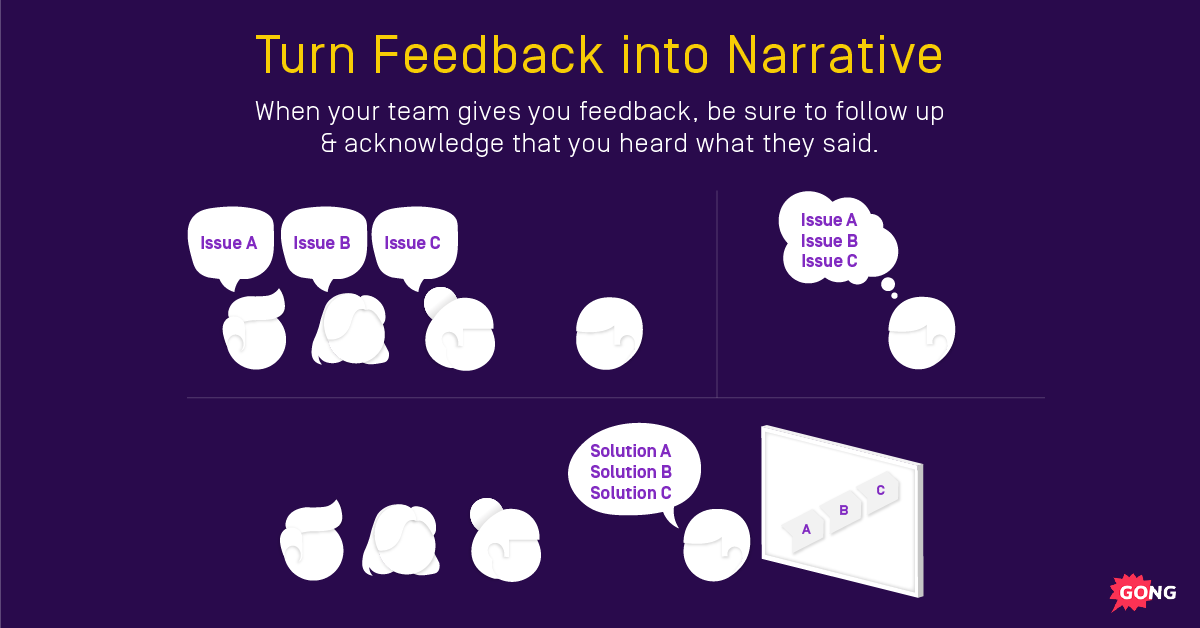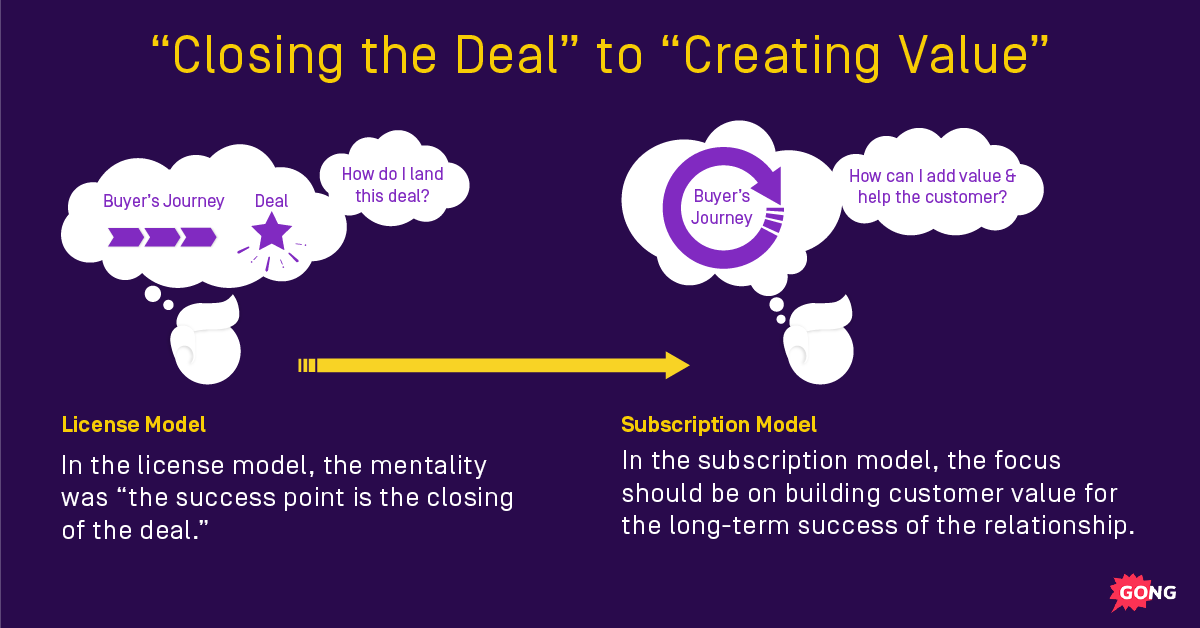Dan Shapero: Why a Growth Mindset is Critical for Your Success
How can learning product development and marketing from the inside help you grow your career?
Why do sales orgs need to move from a “closing the deal” to a “creating value” mindset?
What’s the right timeframe to optimize a new hire?
On a recent episode of the Reveal podcast, we connected with Chief Business Officer at LinkedIn, Dan Shapero, for answers to these and other questions that are top of mind for revenue leaders.
Here are the key takeaways and highlights from that episode.
Learning Product From the Inside
I think that being a great revenue leader or a great COO means you have to be a great partner to the Product team.
I found that the best ways to build out that skill set is either to take a tour in Product Marketing, which can be a fantastic way to understand how to translate product into something that can be brought to market.
Or, to get great feedback from the market and bring it back into the product roadmap. So Product Marketing is actually a nice tour for sales leaders.
The other is—just get involved in launches when a new product in your company is being launched, or you’re doing a new iteration on your existing product. That early feedback loop, those pilot customers, the process of charter or beta. Those are the moments that I feel you can really get a handle on some of the considerations that are important to great products, even without going into the product org or marketing org.
The things that [the younger people I mentor] are going through to get their first job, that grit that they’re building, the determination that inherently is in them to get to that point—that’s going to set them up for a beautiful future in a way they don’t appreciate in the moment.
Turn Feedback into Narrative
When you get feedback from a team, it’s important that you follow up with them, and at least you acknowledge that you heard what they said…just feeling like you were heard accurately and with the right intention and the right care. That is a huge thing that I think people don’t do enough of.
Then what I tend to do is, I take those examples and I use them in my general narrative to the team. So I just sent out a holiday message to my team thanking them for a great year. I took it as a moment to share and reinforce the things that I know are important, which are related to things that have been shared with me.
I think that having the moments to build and reinforce the story over the course of the year is a big part of making sure that you have a team that feels really connected to their leaders.

Moving from “Closing the Deal” to “Creating Value”
The big trend that I’m paying a lot of attention to right now is that, in technology, we’ve moved to subscriptions as the primary way that we work with our customers. And if you go back 20 years, it was very much a license model. If you were in hardware, you sold a box. If you were in software, you sold a license, and the deal was done and you sort of walked away. I think that created a mentality in sales of “the success point is the closing of the deal.”
That just doesn’t play anymore. We’re in a subscription business, where every year a customer decides whether or not they value the relationship, whether or not they want to go bigger with their vendor or their partner. And it’s based on a better understanding on where value is getting created. We’re in a moment where we need to rethink what sales is—from a deal closing organization to a customer value organization—because customer value is the best predictor of long-term success of the relationship.
This trend is incredibly healthy because it aligns the buyer with the seller. At the end of the day, we care about the same thing in that world. I care about delivering value for you because I know that if I deliver value for you, that that’s going to translate into a healthy business, a bigger business, and a bigger relationship over time. I mean, that’s actually the definition of a partnership—real alignment.
I think you’re going to see more companies recognize that customer success really matters, and customer value really matters. But actually that the opportunities for growth is doing more with the companies that already love you. As opposed to finding new companies, or saving a situation that really wasn’t a good fit to begin with. We see a ton of growth just by doing more with the companies that we already do a great job with, but taking it to a whole new level.
I found that there’s sort of a belief in the world that salespeople are coin operated, that you have to tie it to the comp plan. That has not been the case at LinkedIn as far as we’re concerned. Of course, you use comp plans to align your teams with what you know matters.
But things like customer value, things like culture, if you build them into the DNA of your team, they will show up every day trying to make those things happen. And they will work with each other to make them happen, because they know that that’s what makes the business successful.

If you asked a client, “Who do you want to do more business with?” They’re going to say, “The companies that are helping me solve my problems.”
Building a Growth Mindset Culture
I’ve generally found that people want to be in a growth mindset if they’re encouraged to be in a growth mindset. If they’re reminded that learning is how they get ahead. And I think that the people that we hire, they naturally gravitate towards that kind of belief, as long as you celebrate the process with them.
I think the place where people get into fixed mindsets is when they are discouraged or penalized for growth, for learning. For going through the process of not being good at something and then learning how to be good at it.
Optimize Hiring for the Right Timeframe
The worst words you can hear in a hiring discussion is “hit the ground running.” If I had a nickel for every time someone said, “We need to find someone to hit the ground running.” I just cringe every time I hear it, because that means you’re solving for hiring based on a three month window.
Anyone on your team—if you intend to have a long-term relationship with them—you need to at least be thinking 18 months if not 24 months. And so my question every time I’m in that moment is, “On what timeframe are you optimizing for? At what moment should we pull up and ask ourselves whether that was a great hire or not?”
And if that person says three months, I’m like, “Well, we’re in the wrong timeframe. If it were 18 months, would you make a different decision?” And often times, they’ll say yes.
“Great, I’d like us to make a decision on an 18 month timeframe. Is there anything that we need to change about how we’re going to bring this person in to make sure that we are solving for 18 months as opposed to three months?”
But I think that it is absolutely in service of the long-term health of the team and the business to be hiring people that are going to hit their potential over a longer arc.
System Level Thinking
You’re seeing companies build much greater strength in what we at LinkedIn call our foundational team—Sales Ops, Sales Tools, Sales Productivity, Training. These teams are becoming the bedrock of how many sales organizations operate.
And I think you had a generation of sales leaders before that came up through the sales ranks, so they really understood how to run a team. But maybe they didn’t have as much system level thinking about how to operate that foundational layer.
The companies that I see doing great have sales leaders that can play in both worlds. And we are elevating at LinkedIn those foundational teams to make sure that they’re not just in support of, or in service of our sales leaders, but they have an equal seat at the table. Because we know that their success is what’s going to create long-term success for our organization.
People can feel paralyzed when the world feels complicated. And so I think creating simplicity, for me, is a way that I can be as helpful as possible.
Subscribe to Reveal: The Revenue Intelligence Podcast
Every week, we interview senior revenue professionals who share their insights on how they leverage revenue intelligence to drive success and win their market.
You’ll hear how modern go-to-market teams win, close revenue with critical deal insight, and execute their strategic initiatives—plus all the challenges that come along with it.
Listen now at gong.io/podcasts.

